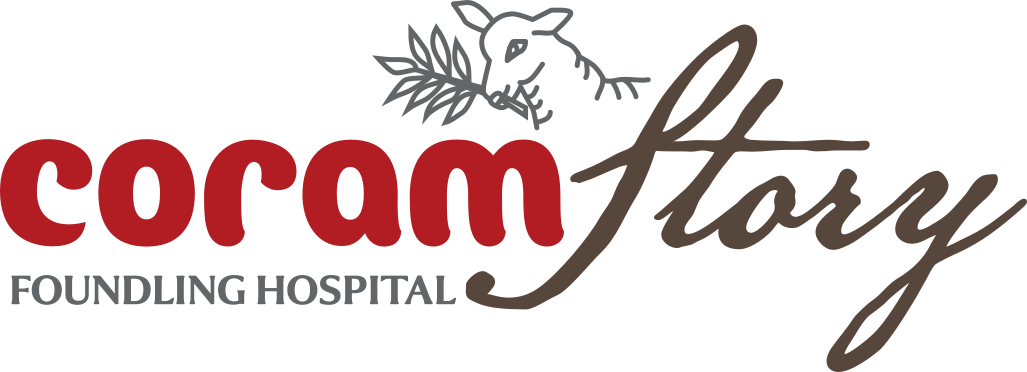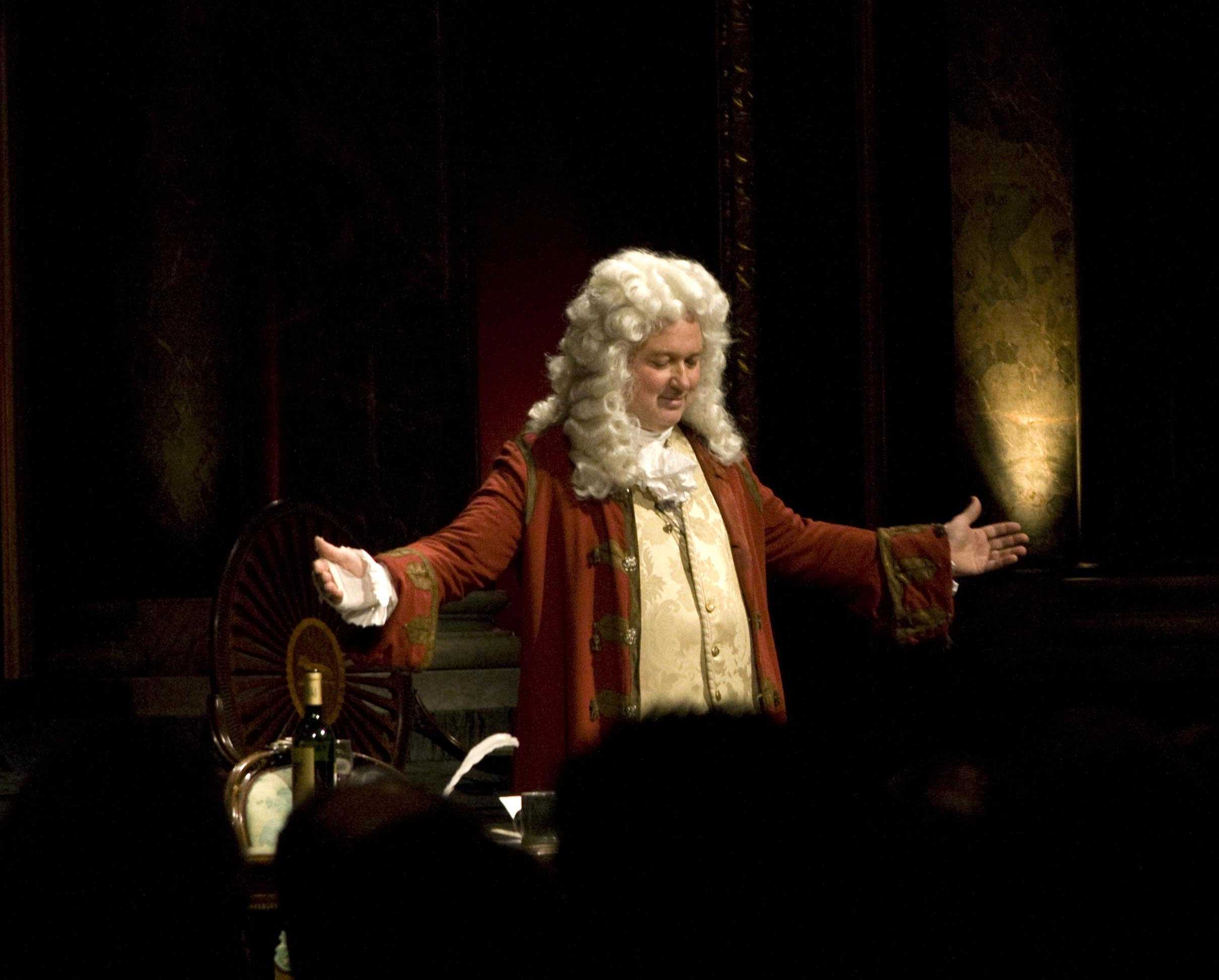Music was an important part of the Foundling Hospital throughout its existence and continues to be important to Coram today.
18th century
In 1749, George Frideric Handel, the famous German composer, agreed to give a benefit concert of his Messiah to raise funds for the completion of the Foundling Hospital’s chapel, which opened in 1753. The success of this concert led to Handel’s appointment as a Hospital governor and began the Foundling Hospital’s strong association with music, which continued for the next two centuries. Handel paid for a new organ and continued to hold annual performances of Messiah in the chapel until his death in 1759.
- Foundling Hospital, The Chapel: Designed and etched by Thomas Rowlandson, The Metropolitan Museum of Art (metmuseum.org). Click to enlarge.
Originally, the Governors believed it was ‘highly improper that … Charity Children should be employed in learning Musick or Singing’. In the 1760s, however, one of the Governors began to teach some of the children to sing psalms, hymns and anthems. In 1770s, blind children with a potential talent for music were specifically taught to sing and play the organ, for performances at Sunday services in the chapel. Two of these Foundlings went on to have successful musical careers: Mercy Draper and Blanche Thetford.
Following the success of fund-raising performances by these and other blind Foundlings, it was decided that all Foundlings would be taught music. It is likely that Governor John Stanley, a blind musician himself, may have played a key role in promoting the musical education of Foundlings during this period. He would often compose music for the Hospital’s chapel services as well as play the organ at them. Music became a regular part of the curriculum.
In his unpublished autobiography, Foundling George King, who was admitted in 1787, tells of his visits to the Hospital on Sunday afternoons in 1804.
“In the evening [I] attended Divine Service and … used to sing with the boys, as I knew the hymns and psalms generally sung from each Sunday in the year.” (George King, undated autobiography)
19th century
In 1847, Secretary John Brownlow, himself a former Foundling, set up a military-style boys’ band. The band was to be a gateway to the military and thus increase the Foundlings’ ‘usefulness’ to the British Army and Royal Navy. The band consisted of around 30 boys at a time. They would practise six days a week, playing and marching before the lunch hour. They would also perform at meals, particularly if members of the public were visiting the Hospital. In 1849, the band gave its first concert.
Prince George, Duke of Cambridge, became the first President of the band during his time as a Governor at the Hospital. In 1857, he established the Royal Military School of Music, at Kneller Hall in Twickenham, London. It was through this link that many Foundling boys joined the British Army. The talent of these boys was so notable that bandmasters would visit the Hospital to select potential candidates for their own regiments.
- Michael Angelo Hayes, 1811–1880,The Band of the 23rd Fusiliers, Yale Center for British Art, Paul Mellon Collection. Click to enlarge.
Over the next century, more than 450 Foundling boys attended Kneller Hall, possibly the largest number of recruits from any single organisation. By the start of World War I, over 80% of the boys leaving the Foundling Hospital were going into military bands. Several of them became regimental bandmasters themselves.
As another musical career, a few boys were apprenticed to musical instrument makers. One such was Stephen Quilter, who set up a successful business in this trade and produced instruments for the British military in the 1880s.
All Foundlings from the age of nine were part of the chapel choir and practised singing two or three times a week in preparation for Sunday services. Foundling Hannah Sherman (later Brown) remembered the choir master/organist with great fondness. His playing was:
“… a joy to listen to. … What happiness we enjoyed in this institution was chiefly centred round the grand music, and the organist, whom it was our greatest wish to please. … On Sunday … when his time for departure came, he would shake hands and say, ‘Goodbye, my darlings’.” (Hannah Brown, The Child She Bare, 1918)
20th century
Music continued to be a route to success for many pupils, such as Charles Nalden. Born in 1908 and brought to the Foundling Hospital by his mother at just three weeks old, Charles joined the school band, playing the cornet. As a teenager he was offered a position in an army band, and he went on to become a successful bandmaster before gaining a doctorate in music from the University of London. He became a Professor of Music in New Zealand and was awarded a CBE for services to music.
In the 1940s, Eleanor Allen was taught to play the oboe as a pupil at the Foundling Hospital in Berkhamsted. She later pursued a music scholarship at Malvern College and then an academic career at the Royal Academy of Music. The foundation she received at the Foundling Hospital allowed her to become a music teacher and pass on her passion for music.
Music had a huge impact on the lives and wellbeing of the Foundlings, as described by John Caldicott, another pupil in the 1940s:
“My first experience was of going into the chapel and hearing this magnificent Handel pipe organ and the sound which I had never heard in my life before … It had an immediate impact on me. It was a complete diversion from the severe lifestyle that we were leading.” (John Caldicott in the film No Place Like Home: The Story of the Foundling Hospital)
John played the clarinet in the school band and did his military service in an army band. Because of his interest in radio, the Foundling Hospital arranged for him to have an apprenticeship as a sound engineer.
- Foundling pupil band. Click to enlarge.
21st century
Music has continued to play an important part at Coram. In our Creative Therapies work, music therapy helps vulnerable children communicate and express their feelings. In 2014, a number of top artists, including Brian May, Sophie Ellis-Bextor and Lily Allen, performed in Coram’s biggest-ever fundraising concert held at the Royal Albert Hall to mark our 275th anniversary. And every February, we hold a Handel Birthday Concert to commemorate Handel’s contribution to the Foundling Hospital.
- From our Handel concert 2010. Click to enlarge.





